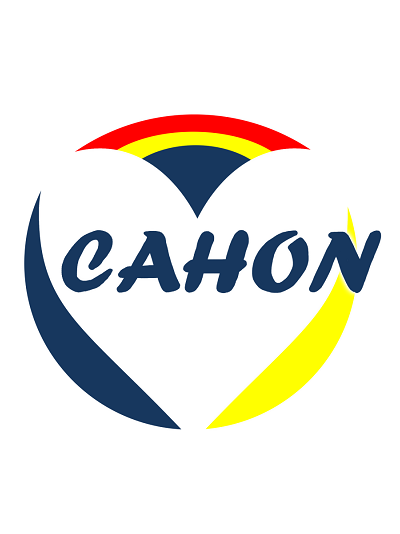Prognostic impact of donor mitochondrial genomic variants in myelodysplastic neoplasms after stem-cell transplantation
IF 29.5
1区 医学
Q1 HEMATOLOGY
引用次数: 0
Abstract
Mitochondrial DNA (mtDNA) variants in patients with myelodysplastic neoplasms (MDS) are shown to be prognostic of outcomes after allogeneic hematopoietic cell transplantation (allo-HCT). However, the prognostic impact of donor mtDNA variants is unknown. Here, we performed whole-genome sequencing on 494 donors who were matched to MDS patients enrolled in the Center for International Blood and Marrow Transplant Research (CIBMTR). We evaluated the impact of donor mtDNA variants on recipients’ transplantation outcomes, including overall survival, relapse, relapse-free survival, and transplant-related mortality. The optimism-adjusted bootstrap method was employed to evaluate the prognostic performance of models that include donor mtDNA variants alone and combined with MDS- and HCT-related clinical factors. In the entire donor cohort, we identified 1,825 mtDNA variants, including 67 potential pathogenic variants. Genetic variants on MT-CYB and MT-ND5 genes were identified as independent predictors of posttransplant outcomes. Integration of donor mtDNA variants into the models based on the International Prognostic Scoring System-Revised (IPSS-R) could capture more prognostic information for MDS patients. Sensitivity analysis in 397 unrelated donors obtained similar results. More importantly, we found that incorporating donor mtDNA variants with donor age and the degree of HLA-matching could help to identify “suboptimal” younger HLA-well-matched unrelated donors and “optimal” older HLA-partially/mismatched unrelated donors. Our study shows that mtDNA variants in donors, including those from unrelated donors, hold prognostic value for MDS patients undergoing allo-HCT and augment the prognostic stratification of current scoring systems. These findings present an opportunity to refine donor selection strategies and improve posttransplant outcomes for MDS patients.供体线粒体基因组变异对干细胞移植后骨髓增生异常肿瘤的预后影响
骨髓增生异常肿瘤(MDS)患者的线粒体DNA(mtDNA)变异可预示异基因造血细胞移植(allo-HCT)后的预后。然而,供体mtDNA变异对预后的影响尚不清楚。在这里,我们对与国际血液和骨髓移植研究中心(CIBMTR)登记的 MDS 患者相匹配的 494 名供者进行了全基因组测序。我们评估了供体 mtDNA 变异对受者移植结果的影响,包括总生存率、复发率、无复发生存率和移植相关死亡率。我们采用乐观调整引导法评估了单独包含供体mtDNA变异以及与MDS和HCT相关临床因素相结合的模型的预后效果。在整个供体队列中,我们发现了1825个mtDNA变异,其中包括67个潜在的致病变异。MT-CYB和MT-ND5基因上的遗传变异被确定为移植后结局的独立预测因子。将供体mtDNA变异纳入基于国际预后评分系统-修订版(IPSS-R)的模型可为MDS患者获取更多预后信息。对 397 名非亲属供体进行的敏感性分析也得出了类似的结果。更重要的是,我们发现将供体mtDNA变异与供体年龄和HLA匹配程度结合起来,有助于识别 "次优 "年轻的HLA匹配良好的非亲属供体和 "优选 "年长的HLA部分/不匹配的非亲属供体。我们的研究表明,供体(包括非亲缘供体)的mtDNA变异对接受异体肝移植的MDS患者具有预后价值,并增强了当前评分系统的预后分层。这些发现为完善供体选择策略和改善 MDS 患者移植后的预后提供了机会。
本文章由计算机程序翻译,如有差异,请以英文原文为准。
求助全文
约1分钟内获得全文
求助全文
来源期刊
CiteScore
48.10
自引率
2.10%
发文量
169
审稿时长
6-12 weeks
期刊介绍:
The Journal of Hematology & Oncology, an open-access journal, publishes high-quality research covering all aspects of hematology and oncology, including reviews and research highlights on "hot topics" by leading experts.
Given the close relationship and rapid evolution of hematology and oncology, the journal aims to meet the demand for a dedicated platform for publishing discoveries from both fields. It serves as an international platform for sharing laboratory and clinical findings among laboratory scientists, physician scientists, hematologists, and oncologists in an open-access format. With a rapid turnaround time from submission to publication, the journal facilitates real-time sharing of knowledge and new successes.

 求助内容:
求助内容: 应助结果提醒方式:
应助结果提醒方式:


